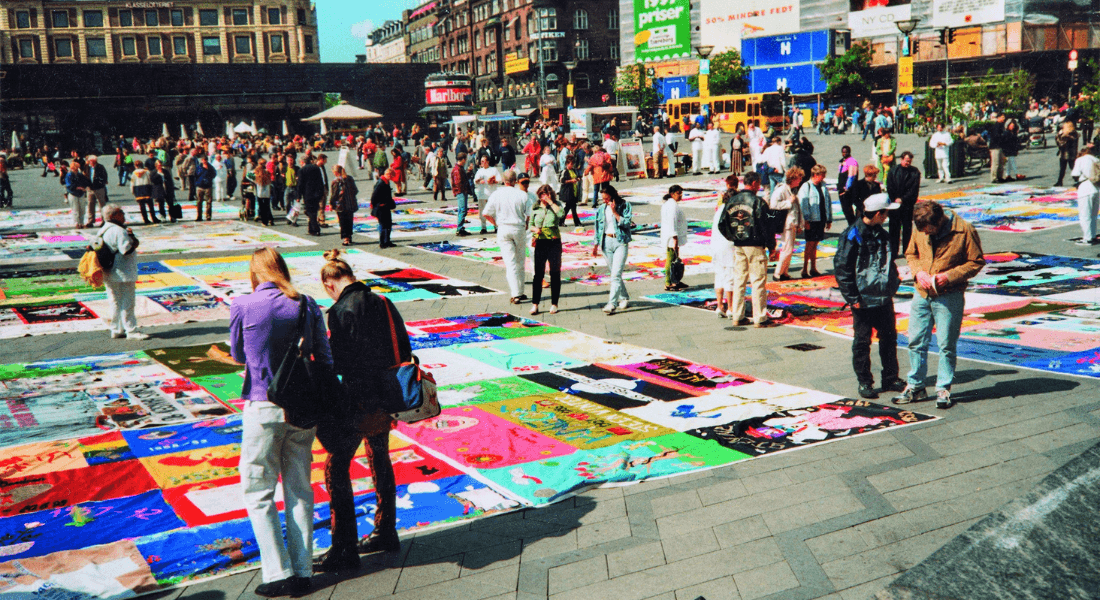The European Histories of HIV/AIDS

The European Histories of HIV/AIDS symposium is an international gathering focused on exploring diverse national responses to the AIDS epidemic across Europe, contrasting them with the US-centric historical narratives. Hosted by the University of Copenhagen, this two-day event brings together scholars to present research on various European approaches to the AIDS crisis from the 1980s to the 1990s, highlighting both cultural, activist, and political responses.
The symposium aims to develop a collaborative network of researchers to pursue future projects and publications that deepen understanding of HIV/AIDS's societal impact and historical significance in Europe. By examining different strategies employed by European nations, it promotes a nuanced understanding of the epidemic’s cultural, social, and policy dimensions, aiming to inform more inclusive public health responses. This initiative broadens HIV/AIDS historical research beyond a US focus, fostering academic and societal insights into the complex relationships between minorities, majorities, and state authorities during health crises.
Supported by the Independent Research Fund Denmark, Centre for Gender, Sexuality and Difference, and Centre for Modern European Studies.
The symposium is hybrid, and online participation is possible.
Wednesday 10 September
| 13:30-14:00 | Welcome (Michael Nebeling) Presentation of the symposium, the network, email-list, website and ambitions for funding. |
| 14:00-16:00 | Contagious Borders: Migration, Race, and Unequal Histories (Chair: Katarzyna Szarla)
This session explores how HIV/AIDS intersected with racialisation, migration, and diasporic belonging in late 20th-century Europe. With case studies from the UK and France, the presentations examine how Black and migrant communities were both pathologised and mobilised, and how racial inequality shaped access to healthcare, activism, and public memory.
|
| 16:00-16:30 | Pause |
| 16:30-18:00 | Activism and the Nation: HIV/AIDS, State Power, and Political Imaginaries (Chair: Moisés Fernández-Cano)
What happens when activism meets nationalism, state bureaucracy, and post-socialist transformation? This session brings together work on Latvia, Norway, and Denmark to investigate how the AIDS crisis became a site for negotiating political identity, institutional collaboration, and the terms of national belonging.
|
Thursday 11 September
| 9:00-11:00 | Multiple Epidemics: Media, Region, and Social Inequality (Chair: Giulia Sbaffi)
This session examines the diverse ways HIV/AIDS unfolded across national and regional contexts. The papers address how media, political decentralisation, gender, and social difference shaped epidemic responses and public understanding in Britain, Italy, Yugoslavia, and Denmark.
|
| 11:00-11:15 | Pause |
| 11:15-12:45 | Silences and Absences: HIV/AIDS at the Margins of Representation (Chair: Rafał Majka)
Why are some voices missing from the archives and cultural narratives of HIV/AIDS? This session looks at silence as both a political condition and an analytical category, exploring what is lost, withheld, or actively erased from the record – across post-Soviet spaces, Poland, and European-level activism.
|
| 12:45-13:30 | Lunch |
| 13:30-15:30 | Literature and the Limits of Representation: Fiction, Memory and Voice (Chair: Monica Pearl)
This session explores how literary texts, life writing, and cultural representations have grappled with the affective, social and political complexities of HIV/AIDS. From Denmark and Spain to Russia and the Netherlands, the papers reflect on the symbolic, narrative and archival roles of literature in epidemic histories.
|
| 16:30-18:00 | Panel conversation with stakeholders: Why do we need research in AIDS histories? What do we need to study? (hosted at Kafé Knud) (Chair: Jesse van Amelsvoort)
Conversation with Danish activists and HIV/AIDS organisations (to be arranged). |
| 19:00 | Dinner in Copenhagen |
Friday 12 September: Workshop on funding
| 10:00-11:15 | Presentations on current and earlier HIV/AIDS projects as inspiration to think about funding (Chair: Michael Nebeling Petersen)
|
| 11:15-11:30 | Pause |
| 11:30-12:15 |
Paths to funding Presentation and discussions with a person from the administrative funding support unit |
| 12:15-13:00 | What and where from here? (Michael Nebeling and Jesse van Amelsvoort) |
| 13:00 | Lunch (on the go) and goodbyes |
Contact
You can get more information about the symposium by contacting Michael Nebeling Petersen.
The registration deadline is 18 August.
Funding
The symposium is funded by CEMES (Centre for Modern European Studies) and Independent Research Fund Denmark.
Map of South Campus
View directions.
View on map of the Faculty of Humanities - South Campus.
View map of South Campus (pdf).
